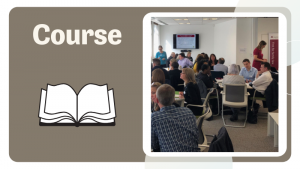Trainer: Angela Lake-Carroll
Trainer: Suzy Power
Following the recommendations of the Voice of the Child Dispute Resolution Advisory Group, the FMC and Family Mediation Standards Board have recently approved the new standards for child inclusive mediation.
 21 January 2020 – London
21 January 2020 – London
As part of the introduction of the child inclusive mediation model, all mediators who are not trained in the Direct Consultation with Children (DCC) model are required to complete an Awareness and Understanding Day to introduce the outline of – and standards for – child inclusive practice for the future.
This is an interactive day with opportunities to:
- Be informed about child inclusive mediation, how to raise this with parents and how this works for children
- Consider how to build this into your own practice
- Have an opportunity to consider and to practice the knowledge and skills required
Please note: If you are a mediator who has already trained in DCC practice, there is an update day specifically for practitioners and PPCs who provide consultancy to the current DCC practitioners
If you are a mediator who is planning to train in Child Inclusive Mediation (to meet with children and young people directly), you must have completed this Awareness and Understanding Day before applying for and attending training.
If you’re not sure which course you need to attend, please see our flowchart.
Programme
| 9.00 – 9.30 | Registration and refreshments |
| 9.30 – 9.50 | Introduction and outline of the day |
| 9.50 – 10.10 | What are your worries and concerns as mediators when considering how to approach parents regarding their children talking to a practitioner (small group discussions) |
| 10.10 – 11.00 | Understanding the philosophy and principles the importance of children having a voice
|
| 11.00 – 11.15 | Coffee |
| 11.15 – 12.00 | The range of practice models for mediators to talk with children
|
| 12.00 – 13.00 | Role play followed by group feedback and discussion |
| 13.00 – 14.00 | Lunch |
| 14.00 – 14.30 | What warning signs might indicate concerns around seeing a child?
|
| 14.30 – 15.00 | Contacting a child to set up a meeting, how the process works |
| 15.00 – 15.15 | Tea |
| 15.15 – 16.15 | Case scenarios |
| 16.15 – 16.45 | Age related concerns, involvement of siblings |
| 16.45 – 17.30 | Questions and close |
| 17.30 | End of day |
